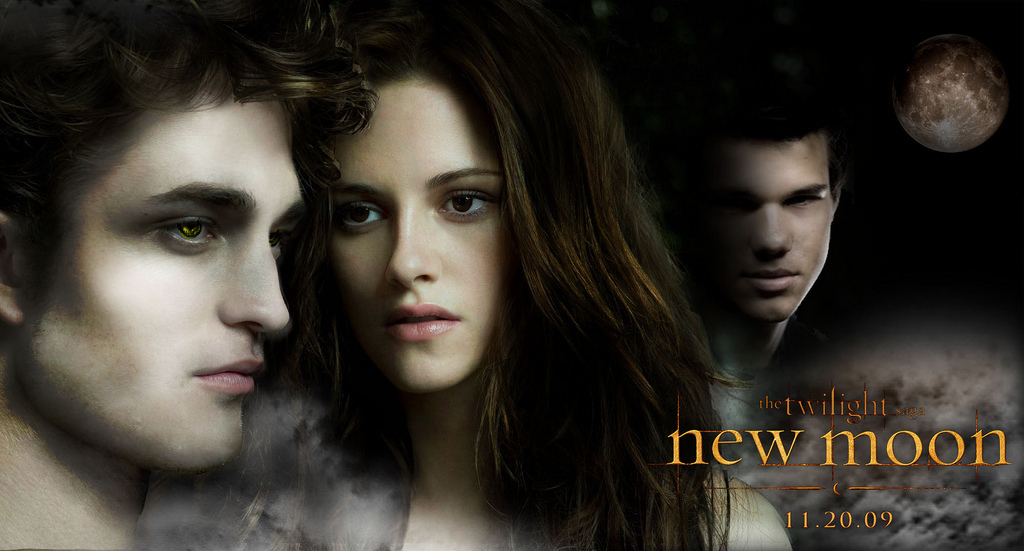Leslie Grinner shows how each part of the acronym is associated with the movie.
STRAIGHTNESS: Straightness is shown to be idolized in the movie because all of the romantic relationships in the movie are heterosexual. Bella and Edward is the most prominent heterosexual relationship in the movie and both of these characters are idolized. They are the main character and they focus on their lives throughout the entire movie. They are also portrayed as the good guys. Another thing that shows that heterosexuality is shown in this movie is that at one point Bella asks her father why he doesn't have a wife/girlfriend. Bella is showing that heterosexuality is valued because if it wasn't then she could have asked why he did not have a significant other instead of specifying a certain gender.
CHRISTIANITY: Christianity is shown because throughout the entire series of movies, Edward Cullen provides a moral compass for Bella to stay a virgin. He does this by saying that he will not have sex with her unless they are married. Christians believe that sex before marriage is a sin and that you should wait until after you are married.
WHITENESS: Whiteness is definitely valued in this movie because basically every one of the main actors in the movie are white except for a few of Bella's friends and there is one African American Vampire. It seems that the white people in the movie are valued because they are the main characters and because all of Bella's friends who are all different races all wish that they could have her. Bella is the whitest person in the movie and it shows that she is idolized because all of the boys want her. Also, the only black vampire is not seen very much in the movie and he is portrayed as a bad guy and a trickster. I feel like McIntosh comes into play here because his reading was all about how whites are privileged and valued. He says that whiteness is an invisible privege and this goes into the category of property holding in S.C.W.A.M.P. Edward is white and he is rich and Jacob is not white and he is not rich.
ABLEBODIEDNESS: In the Twilight series there is only one person in the whole movie who is disabled. He is in a wheel chair and although he is in a wheelchair he is portrayed as a very smart and wise man. I would have expected that the person in the wheelchair would be portrayed as needy and helpless like I have seen in other movies.
MALENESS: Maleness is shown all over the place in this movie. In the series Bella is mostly surrounded by males and they are basically controlling her lives. Like I said earlier, Edward is trying to control Bella's moral compass to keep her a virgin. Jacob tries to control her life by trying to make Bella fall in love with him. In the movie males are always Bella's protectors. There is her dad, Jacob, Edward, etc. Also, Bella has to give up almost EVERYTHING to be with Edward. She will do anything for him and to be with him. It shows that woman have to stand down to men and do whatever they can to please them and that they can't live and please themselves; that they need a man to make them happy.
PROPERTY HOLDING: In the movie Bella eventually chooses Edward over Jacob. Edward is rich; he has a nice home, and nice clothes, etc. Jacob lives on a reservation and does not have a lot of money. Jacob's family is working class. Since Bella picked Edward it shows that wealth is idolized. She picked the boy that had nicer things than the boy who just lived in a regular house and had to work for his money.
An author I think that represents all of these areas of S.C.W.A.M.P. is Johnson. His reading is all about priviledge, power, and difference. In Twilight it is clearly shown the differences between privilege in race, sexuality, class, and gender. It is shown all throughout the Twilight series as I have given examples of previously. And lastly, Christensen is also a an author that I thought about while listening to Leslie Grinner. Her entire event was all about S.C.W.A.M.P. in the movie Twilight. Twilight is a part of media. It just goes to show that the media has a huge impact on people because you can clearly see that straightness, Christianity, whiteness, ablebodiedness, maleness, and property holding are valued in society because you see it in the media everywhere. Everybody is affected by it. Just look at all of the people who are obsessed with Twilight. Leslie Grinner even mentioned in her talk that she has even heard of people getting divorced over whether they were on team Edward or team Jacob. The media must really have a huge impact on those people if it affected their lives that much to get a divorce over it. Here is a story from a man about his wife's obsession with Twilight and how it affected their love life.
All in all I really enjoyed this social justice event because it made me see how S.C.W.A.M.P. really is valued in the real world through media and movies. Also, Leslie Grinner made it fun with her great attitude :)








